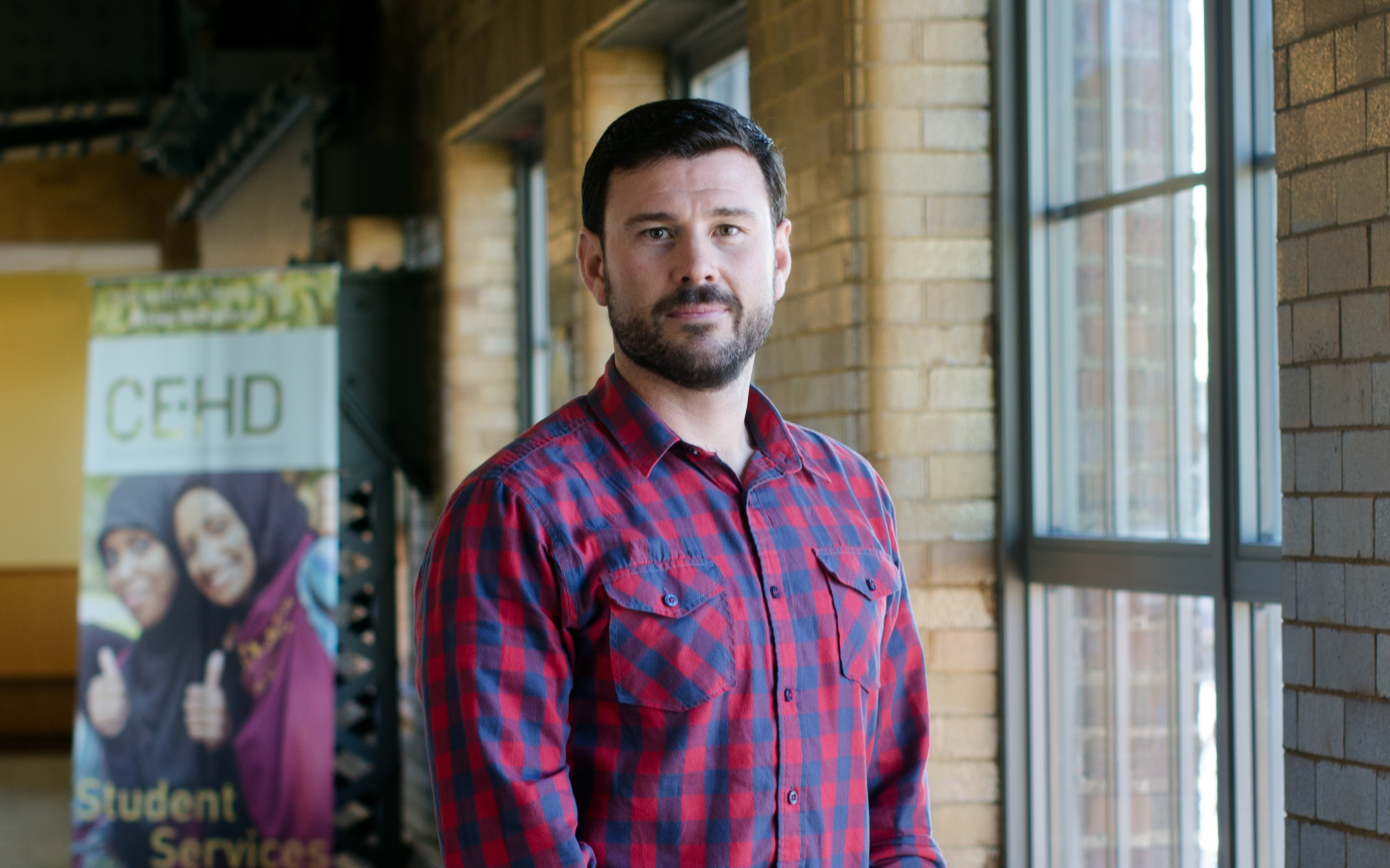Growing up in a small California town, Clayton Cook’s life started without advantages most kids take for granted.
“My mom and dad were amazing, loving parents, but financial and educational resources were limited,” says Cook. “My dad has Native American heritage with all of the historical oppression that goes with that. This—combined with the poverty my mom’s family endured—meant that my brother and I did not have access to many of the cultural, intellectual, and educational experiences affluence affords.”
Cook struggled with his own behavior in school during his high school years.
“I was in and out of trouble and often engaged in behaviors that allowed me to experience first-hand how schools can be ineffective—overusing punitive disciplinary practices and failing to provide needed supports,” he recalls.
Although school wasn’t his priority at the time, sports were. As a three-sport athlete who excelled in basketball, Cook stayed committed to school, which earned him the opportunity to attend junior college and, later, a four-year university.
“Sports kept me interested in education and, eventually, led me to academia,” says Cook, now an associate professor of educational psychology.
Research gets real
Cook’s interest in the field of school psychology came about by coincidence.
“Halfway through my junior year, I was a floundering undergrad with GPA only slightly over 1.0. I was in a developmental psychology class, and the professor took an interest in me. He asked me to be his research assistant on a 30-year longitudinal study,” Cook says. “It was the first time I ever participated in research, and it lit a passion in me. I wanted to research ways to integrate education and psychology to improve the lives of students who have social, emotional, and behavioral needs.”
The first in his family to attend and graduate college, Cook completed a bachelor’s degree in psychology and began working as a paraprofessional for students with emotional and behavioral disorders.
“As a paraprofessional, you deal with the raw, in-the-trenches needs kids bring to the educational table,” he says. “I’d see kids whose needs were not being met by anybody—not at school nor at home.”
It was then that Cook decided to pursue his Ph.D.
“I recognized the potential for schools to significantly impact not just individual kids but systems of care to better support students and their families,” he says.
Becoming part of the solution
It was only once he began working toward his doctorate at the University of California–Riverside that Cook says he began to understand the difference school psychologists can make.
“I discovered that when psychological principles are applied to improve the quality of supports, school can become the great equalizer, the thing that lifts students up to help them succeed.”
As part of his graduate training, Cook completed a predoctoral internship at Boys Town in Omaha, Nebraska, a residential facility that helps rehabilitate and transition youth with significant social, emotional, and behavioral problems back into their communities. This experience led to assistant professorships at Louisiana State University, Baton Rouge, and the University of Washington in Seattle.
While in Seattle, Cook and his colleagues received a series of federal grants designed to improve mental health-related practices in the schools. One of their current projects involves the development of a strengths-based intervention program for at-risk students called the Student Engagement and Enrichment Program. Students in the program don’t know they’ve been identified as at-risk; they receive the intervention along with typical peers, never being removed from class or isolated from others.
The goal: to change how kids experience, think about, and feel toward school.
“It triggers changes in how students perceive themselves, how they feel, and creates an ‘aha’ moment when each looks at him- or herself, school, and future differently,” he explains. “It is not necessarily an acquired skill—rather a mindset and way of filtering one’s experiences. So, it doesn’t take much time to do.”
Student success through support
Now at the University of Minnesota, the one-time troublemaker is the John W. and Nancy E. Peyton Faculty Fellow in Child and Adolescent Wellbeing, a researcher in the Institute for Translational Research for Children’s Mental Health, and an associate professor in the Department of Educational Psychology’s school psychology program.
The main focus of Cook’s research—and what he insists is the most rewarding—is promoting mental health-related practices in schools. “Schools are the epicenter of communities where children and their families gather,” he explains. “There is great potential for students and their families to access what they need when delivered via schools.”
The challenge, he argues, is the stigma surrounding mental illness. When speaking to a group of educators, he often asks how many in the room have experienced a physical illness, and nearly everyone’s hands shoot up. Then, he asks who has experienced some form of mental illness, and only a few raise their hands.
“Mental health is foundational for living a happy, healthy, and effective life,” he says. “One of the greatest needs we have in our society is the lack of access to quality mental health services that support children’s social, emotional, and behavioral needs. This—along with my family and friends—is what gets me up every morning.”
Read more about Clayton Cook and the Department of Educational Psychology.
Story by Sarah Jergenson and Juhong Ren | December 2016/update June 2017
